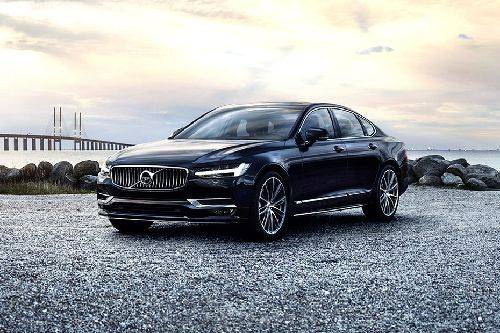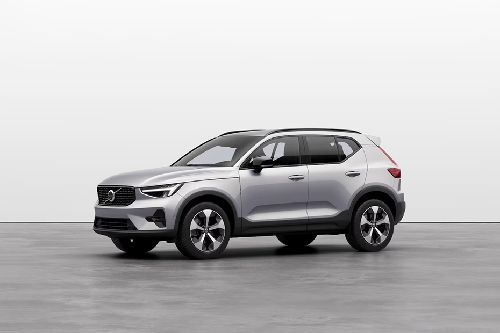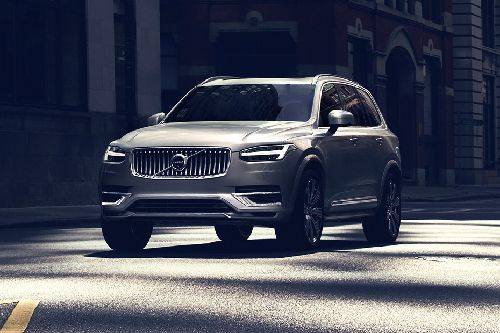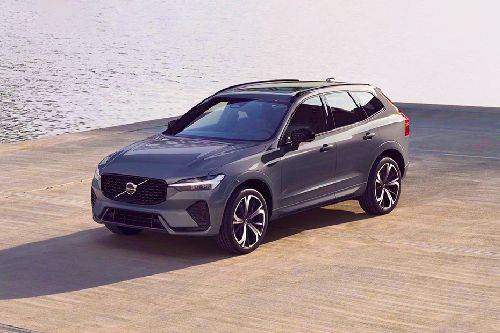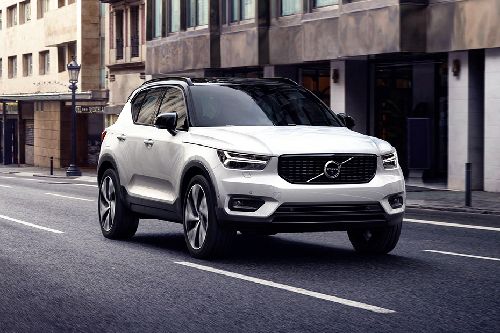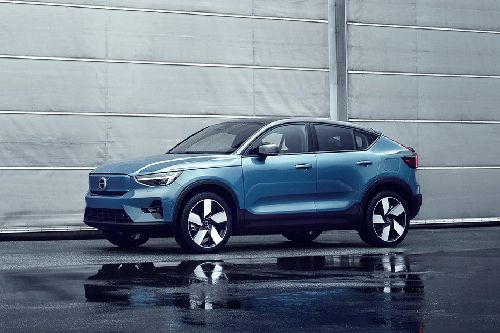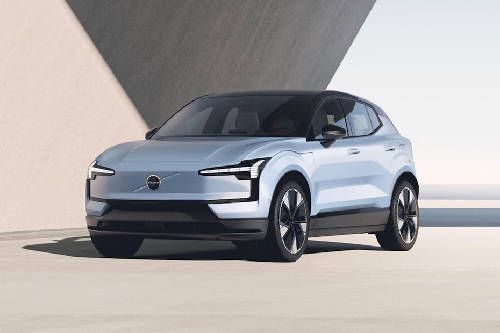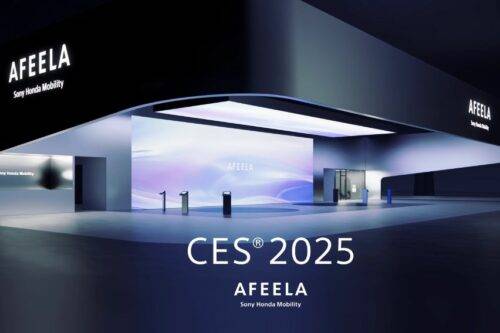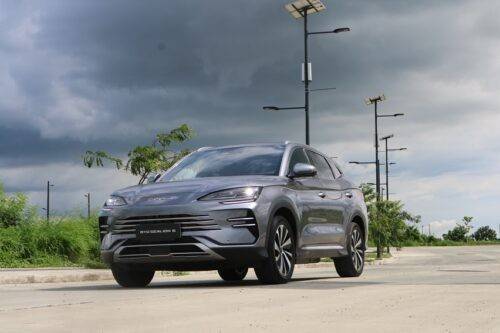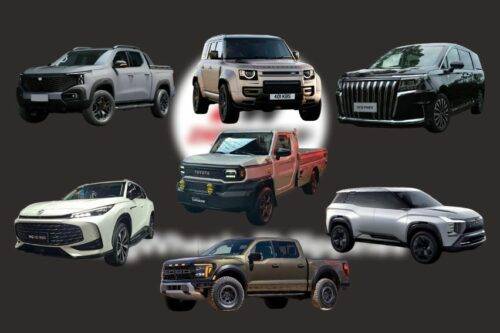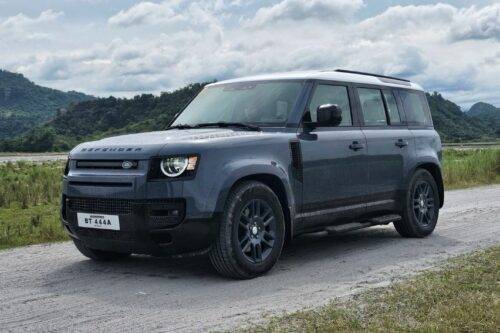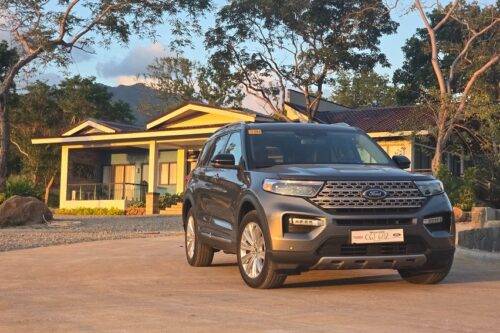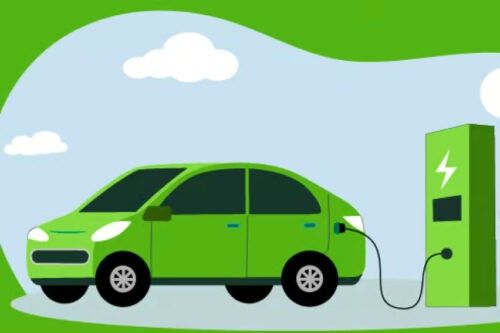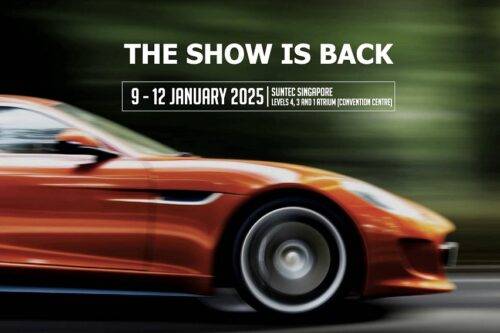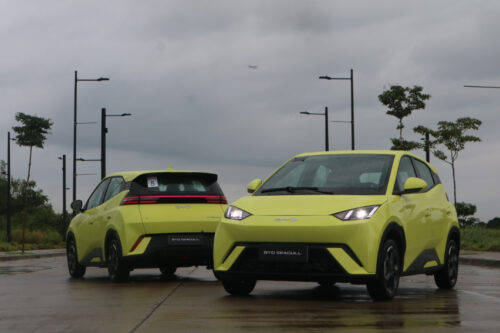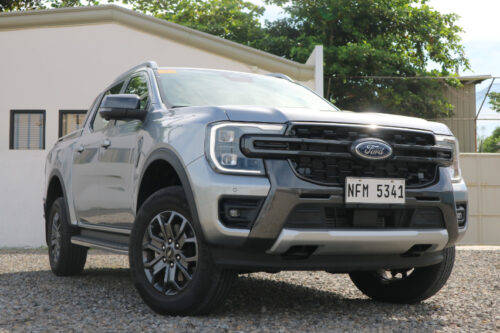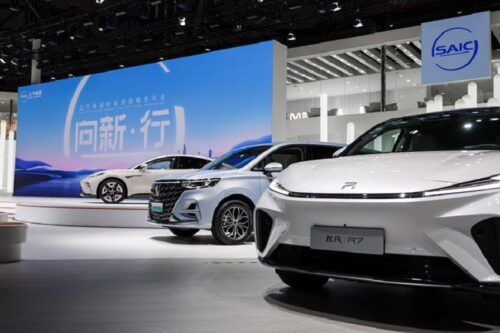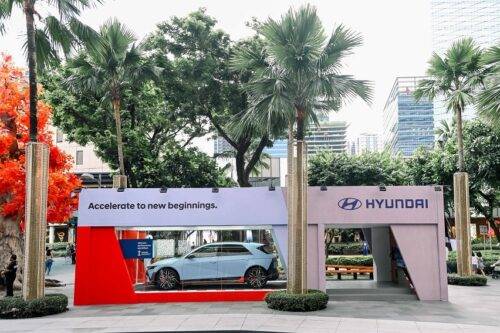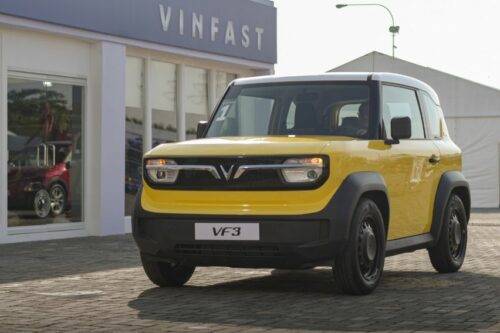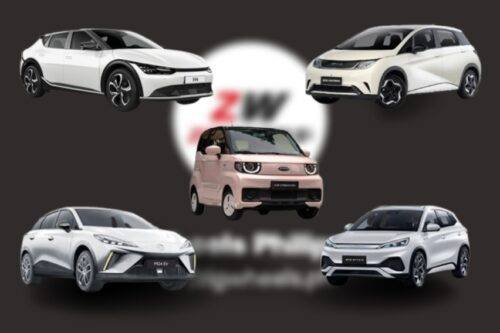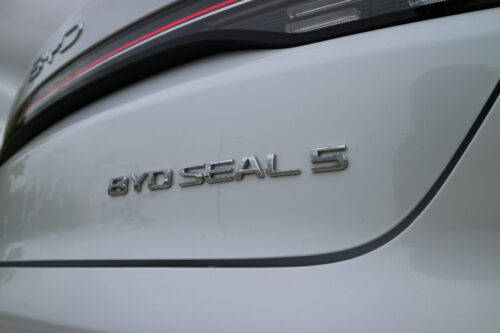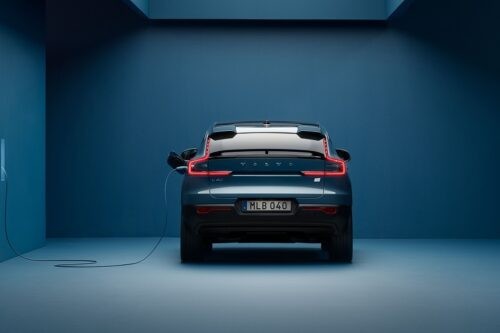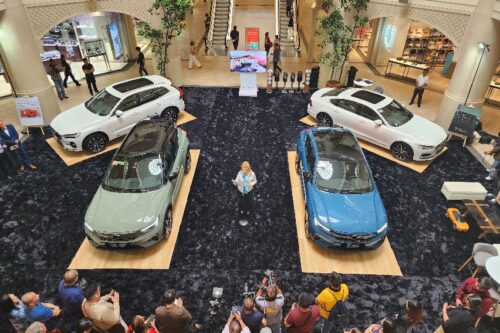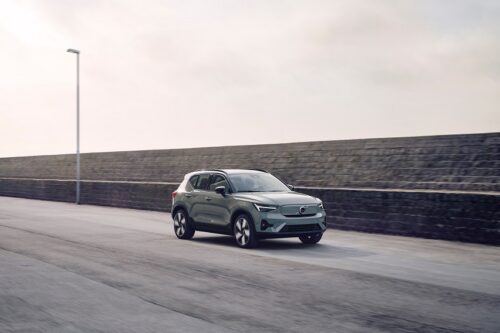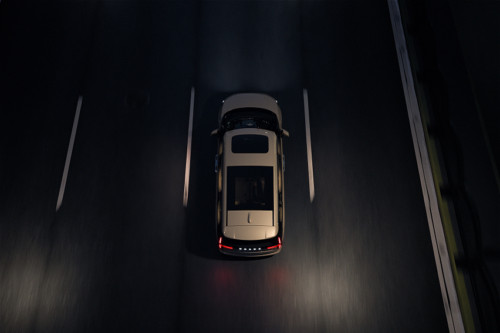Upcoming Volvo EX90 to feature bi-directional charging
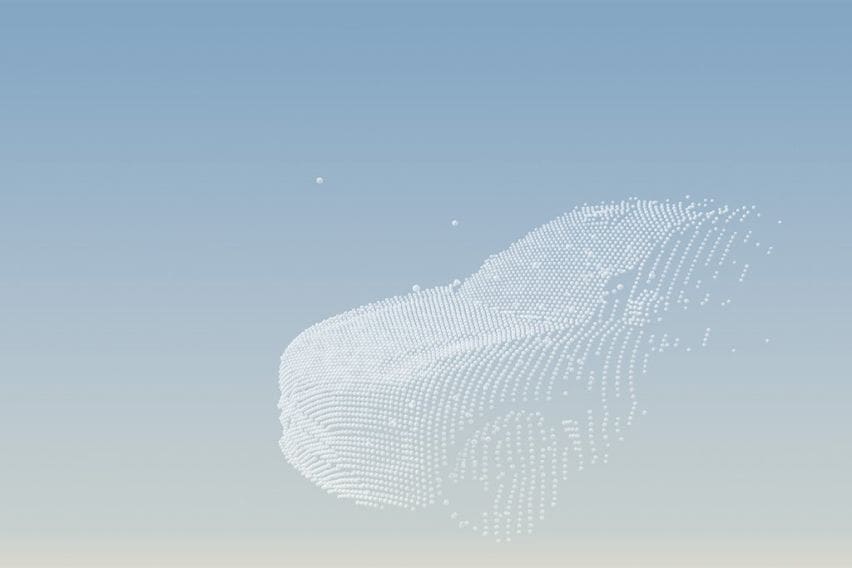
MANILA: Many people make an effort to protect the environment by recycling what they can, cooking with less food waste, or driving electric vehicles.
KEY TAKEAWAYS
How will the bi-directional charging work in the Volvo EX90?
Depending on rules specific to each energy market, bi-directional charging could also allow customers to support the grid in different ways. This could include taking in more energy during times when there’s a surplus of renewable energy, or selling energy back during peak usage hours when there is more demand.Will the Volvo EX90's bi-directional charging able to provide power to other Volvo vehicles?
The Volvo will eventually be able to assist out and give some of its power to other compatible Volvos, in addition to being able to charge appliances and other gadgets. In the same way, a Volvo owner will also welcome assistance from other Volvo vehicles.However, it might be challenging for many to understand how to raise the share of renewable sources in the electricity they use in order to make energy usage more sustainable.
As society becomes more electrified, with automobiles playing a large role in the green transition, the grid may become significantly more strained.
With bi-directional charging, according to Volvo, electric vehicles may be able to ease this burden while plugged in, with many other electric vehicles acting as a kind of power plant.
When disconnected, it transforms into a battery on wheels that powers users' life on the go, whether it be for outdoor cooking, power tools, or a music system. It may also help power users' own home energy demands.
The next Volvo EX90, a fully electric vehicle that will be unveiled in November, will be the first Volvo vehicle with hardware support for bi-directional charging.

Bi-directional charging, which is now only accessible in a few markets, has the potential to make energy use more affordable, effective, and sustainable.
Paired with smart-charging capabilities coming to the Volvo Cars smartphone app, the Volvo EX90 will allow charging when demand from the grid and costs are low – normally implying there are more renewable sources in the energy mix – and save that stored energy to be used later.
“With the Volvo EX90 you can power your life,” said Olivier Loedel, Head of Electrification Ecosystem at Volvo Cars.
“You could use its battery in many ways, from topping up your electric bike when you’re out and about, to hooking up an outdoor cooking appliance for your weekend camping trip. It could even power your house during the expensive peak hours of the day.”
The Volvo will eventually be able to assist out and give some of its power to other compatible Volvos, in addition to being able to charge appliances and other gadgets. In the same way, a Volvo owner will also welcome assistance from other Volvo vehicles.

Where possible, the Volvo Cars app's smart charging feature will control the entire charging procedure automatically. The underlying algorithm also ensures that users only partially charge and fully discharge the battery, minimizing the chance of needless battery deterioration.
Depending on rules specific to each energy market, bi-directional charging could also allow customers to support the grid in different ways. This could include taking in more energy during times when there’s a surplus of renewable energy, or selling energy back during peak usage hours when there is more demand.
If most cars have this functionality in the future, then the grid could be balanced more often. That could increase the overall sustainability of the grid by reducing potential energy waste from renewable sources at times when production outperforms demand.
“Imagine this scenario: you come home from work with plenty of energy left in the battery, which has earlier been charged with cheaper and cleaner electricity,” Volvo illustrated in a release.
“During the evening, your car can be plugged in and discharge energy when electricity prices are higher. Since energy is generally cheaper when climate-neutral sources are contributing more to the power supply, this energy transaction can save money on your energy bill and give back cleaner energy to the grid at the same time,” the carmaker added.

“We believe in a future where our customers can support the grid using this technology, enabling a more efficient and sustainable use of electricity in everyday life,” Olivier Loedel added.
Volvo plans to offer the hardware you need to start using bi-directional charging features, including an advanced wallbox and home energy management system. Other accessories such as adapter plugs for appliances and cables for charging other cars will also be available.
The Volvo EX90 — what could be the production rendition of the Concept Recharge debuted in July of last year — is scheduled to make its premiere this November. The phrase "less but better" is at the heart of the aforementioned design, which was unveiled as the platform for the automaker's upcoming all-electric vehicles.
The new SPA2 platform, which also allows internal combustion engines with a hybrid configuration, is supported by the EV.
In order to fit both a battery pack and an internal combustion engine, the initial generation of electric cars from Volvo will coexist on the same floor as vehicles powered by combustion engines.
The designers have increased the car's wheelbase and tire size, as shown in the Volvo Concept Recharge, by removing the engine and installing a full battery pack underneath the flat floor.
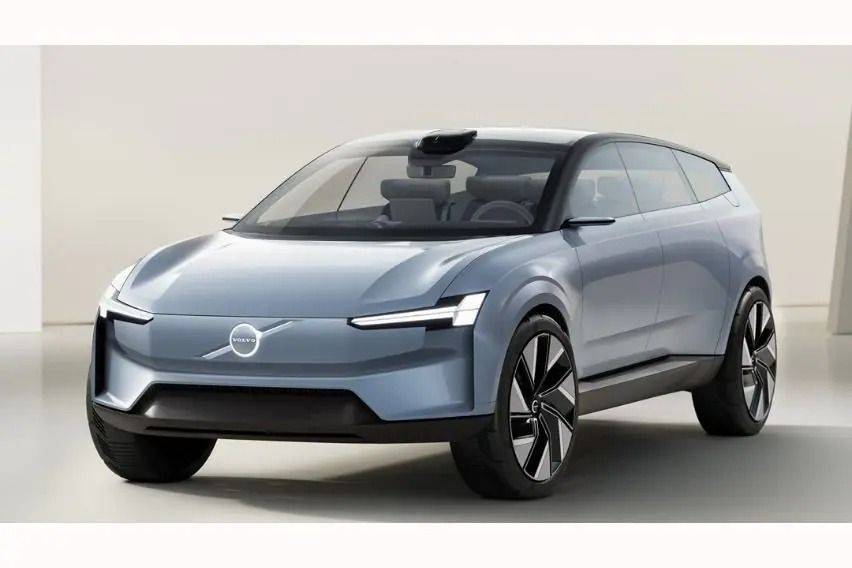
As a result, there are less overhangs and much more inside room, including a sizable storage compartment between the front seats.
These developments prompted designers of the Concept Recharge to relocate the seats, optimize the roof shape, and reduce the bonnet of the vehicle while preserving the high eye point cherished by owners of Volvo’s SUVs. When compared to a normal SUV, this strategy produces aerodynamic efficiency advantages that increase range.
Additionally, this concept car debuts a fresh design language for Volvo.
A shield-like structure in place of the standard grille is complemented by an updated version of Volvo Cars' Thor's Hammer headlamp design. These feature the most recent pure graphics with HD technology, which open at night to show the primary lamp units.
The brand's iconic vertical rear lamps are modernized with wings that extend at greater cruising speeds to further enhance aerodynamics. They nonetheless pay homage to the brand's rich design history.
“Our Concept Recharge represents a manifesto for the all-electric future of Volvo Cars, as well as a new type of vehicle,” said Robin Page, Head of Design at Volvo Cars. “It displays new and modern proportions that go hand in hand with increased versatility and shows what technology can enable in terms of design.”

Inside, the Concept Recharge continues to show the new version of the Volvo design language. The flat floor gives everyone within the car greater room and a more comfortable seating posture.
The centerpiece of the company's next-generation connected infotainment system's enhanced and better user experience is a sizable, 15-inch standing touchscreen. Technology aids in creating a quiet and calm environment by being rational and simple to use.
The latest infotainment technology goes hand in hand with those other hallmarks of Scandinavian design: clean lines and extensive use of sustainable and natural materials inside the cabin.
“Inside the Concept Recharge, we create a truly Scandinavian living room feeling,” added Robin Page. “The interior integrates our latest user experience technology with beautiful, sustainable and natural materials. Each part of the interior is like a piece of art and could stand alone as individual furniture in a room. We use the latest technologies but not for their own sake. We always focus on the benefits that technologies can bring.”
“With the Concept Recharge, we continue the rich roots of Volvo’s design DNA in a modern and fresh way as we move into our all-electric future,” concluded Page. “It represents everything we believe customers expect from a pure electric Volvo and we’re excited to take this philosophy into our next generation of cars.”
Early this year, Volvo Cars through the Volvo Cars Tech Fund, the carmaker's tech venture arm, made an investment in Bcomp, an innovative Swiss firm that develops high-performance lightweight materials based on natural fibers.

To create its materials, Bcomp uses flax fibers, a bio-based material that offers significant savings in terms of weight, energy use and emissions versus regular plastic parts. The material also enables design options for aesthetic surfaces.
Volvo is actively exploring the use of natural fiber composites in its next generation of pure electric cars, while its EV brand Polestar also aims to use Bcomp’s materials in forthcoming models.
Volvo used Bcomp’s materials in its most recent concept car, the Volvo Cars Concept Recharge. Bcomp’s calculations show that compared to regular plastic parts, the natural fiber-based composites are up to 50% lighter, use up to 70% less plastic and generate up to 62% lower CO2 emissions.
Photos from Volvo
Also read: Coffee and charging: Volvo begins installation of EV chargers at select Starbucks branches in US
Sell your car at the best price
 Verified and genuine buyers
Verified and genuine buyers
Volvo Car Models
PIMS 2024
Trending & Fresh Updates
- Latest
- Popular
You might also be interested in
- News
- Featured Stories
Volvo Featured Cars
- Latest
- Popular
Latest Volvo Car Videos on Zigwheels

Volvo Car Articles From Carmudi
- journal

